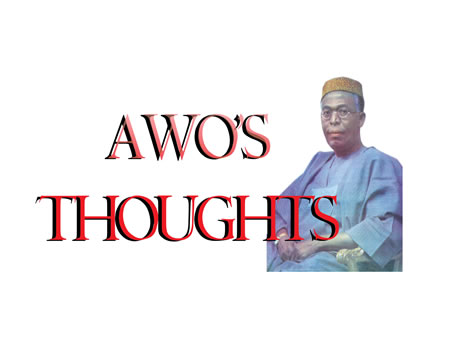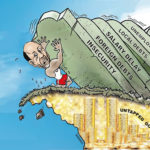CONTINUED FROM LAST WEEK
IN this connection, I would like to observe, in passing, that though the requirements of politics and the realities of economics do not always mix, yet, even if it had been wise for us to devalue, the unilateral manner in which Britain called the tune would have been regarded as such an affront to our independence and sovereignty as to make me want to refuse to dance to that tune.
As I said before, we lost substantially as a result of the Sterling devaluation, and would have lost much more if we had devalued.
We could ill-afford any loss—let alone a substantial loss – of foreign exchange, in the prevailing circumstances. But this was the risk we took as a member of the Sterling Group. Howbeit, it was a risk we did not want to continue to take. Yet, after a careful consideration, we came to the view that it would not be prudent for us to pull out of the Sterling community. In order, therefore, to avoid a repetition of our painful experience, we sought to secure from the British Government a guarantee against a recurrence – that is, against loss, in the event of another devaluation of the British £. It must be said to the credit of the British Government that the guarantee which we sought was readily given. The same thing goes for other countries, similarly circumstanced as ourselves, within the Sterling community. In other words, we are now fully insured against loss, in the event of a future devaluation of the Sterling.
As a result of all these measures, we were able to provide, on our own, £230.8 million in local currency, and £708 million in foreign exchange, to finance the civil war. We were also able, as a result, to survive the strains, the stresses, and the exigencies of the war, without blemish to our national honour and pride, and without any corrosion of our sovereignty and self-confidence. Furthermore, by being compelled to mobilise and deploy the financial resources of the country to meet the ineluctable demands of war, we were able to discover—this much is revealed by the facts and figures which I have given in the course of this lecture – that the capacity of Nigeria for economic growth and self-reliance is enormous.
My officials and I have been commended for the prudent manner in which we had managed the finances of the country during the war. It would be hypocritical for me to say that we do not deserve some praise. But I think it is to our great and beloved country that ‘all glory, laud, and honour’ should go, for its expansive and fascinating manageability. No one in this country could have predicted that Nigeria could go through this kind of war without being heavily indebted financially to anyone outside Nigeria, and, at the same time, emerge at the end of it all as a most virile and buoyant economy. We had successfully weathered the storms of one of the worst civil wars in history, and we are now fortified by our war-time practical experiences to meet the multifarious and intricate challenges of peace, including the rapid development of our country. In other words, we are in a position today to say truthfully that we have fulfilled the first of our two objectives by winning the war, and that we are properly equipped and sufficiently strong financially to fulfil our second objective of winning the peace.
It would be erroneous to regard the sum of £300 million as representing the total and only cost of the civil war to Nigeria. This figure is no more than the calculable and visible cost of the war. There are other costs: some are hidden; some are incalculable; others are waiting to be calculated by diligent economists, econometricians, and statisticians.
In the early part of this lecture, I spoke of lost grounds and progress foregone. The average growth rate of our GDP (excluding oil), during the period of 1958/59 to 1966/67, is 6.6 per cent. Dr. John D. Letiche, Professor of International Economics at the University of California, in the United States, assuming a growth rate of 5 per cent for our GDP, opined in September 1968, eighteen months before the end of the war, that, because of the civil war, Nigeria ‘has lost income foregone of a minimum of $400 million…’ This must have since doubled to about £286 million. The cost of infrastructure, public and private properties, damaged and destroyed, during and because of the war, has not yet been fully calculated. But it will be generally agreed that this must run into several millions of £N. And, of course, we all know that the cost of the civil war, in terms of human sufferings, and of human lives lost, is incalculable.
I now turn to the second part of this lecture: the implications for the future economy of the nation of financing the Nigerian civil war.
I take it that we all agree that the civil war, like any war at all for that matter, could not have been fought for any length of time, let alone victoriously after a protracted campaign, without adequate funds. This being so, I would like to state that financing the Nigerian civil war—that is, making it possible for us to wage the war as we did—has left us with bad and good legacies which can have far-reaching implications for the future economy of the nation. I propose to deal with six of such implications.
CONTINUES NEXT WEEK
WATCH TOP VIDEOS FROM NIGERIAN TRIBUNE TV
- Relationship Hangout: Public vs Private Proposals – Which Truly Wins in Love?
- “No” Is a Complete Sentence: Why You Should Stop Feeling Guilty
- Relationship Hangout: Friendship Talk 2025 – How to Be a Good Friend & Big Questions on Friendship
- Police Overpower Armed Robbers in Ibadan After Fierce Struggle






